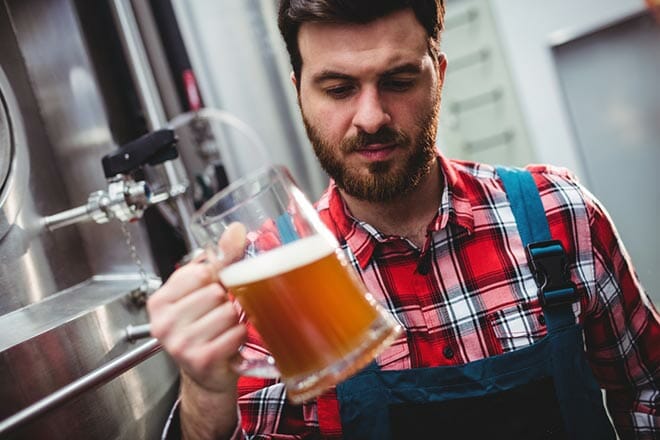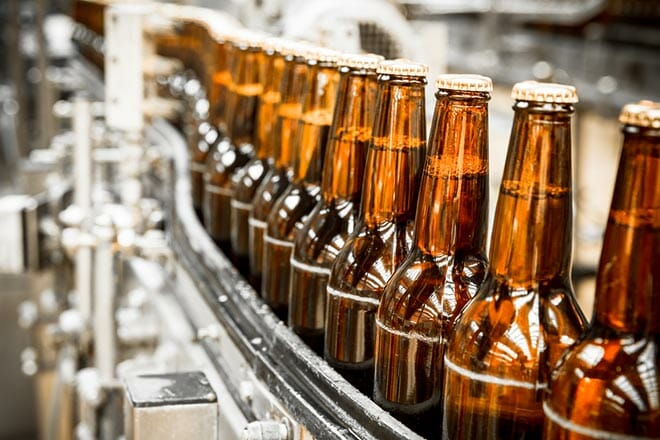It’s small wonder craft beer makers are popping up all over the United States. Americans old enough to drink alcohol consume an average of more than 27 gallons of the stuff each year. Even though total consumption doesn’t appear to be growing that much, it still looks like a pretty good market to jump into.
Whether large or small, breweries, like other beverage manufacturers, are responsible for putting out a product that is of consistently high quality and safe to drink. Sanitary strainers play a big role in achieving both objectives.

Changing strainers for a changing industry
Humans have been brewing beer for about 8,000 years. For most of those millennia, the ingredients have stayed pretty much the same: water, some kind of starch, yeast and hops.
These days, things are different. Once upon a time, for example, anyone suggesting adding fruit to a mug of suds would have been run out of town. Now, beer with fruit flavoring of some kind can be found in just about any brewpub. And people love fruity beer.
But complicating the beer recipe also complicates the strainer picture. What kind of strainer is needed to handle the fruit pulp? How does the acid from the fruit affect the strainer? In other words, introducing flavors brings new challenges that have to be dealt with to maintain quality and safety.

Custom brewing might call for a custom beer strainer
Craft breweries take pride in—actually exist because of—their uniqueness. They want to put out a product that’s different. If setting a brewery apart means adding kumquats, then kumquats will go into the recipe. But it would be a good idea to talk with a reputable strainer manufacturer before brewing the first batch.
A beer brewing strainer should be chosen with an eye to several factors, including:
- Size of the particulate to be removed
- Size of the line and the flow rate
- Percentage of solids to be captured
- Product temperature and viscosity
Ignoring these and other considerations can lead to problems like clogged strainers that can halt production, resulting in lost time and money. A careful evaluation could show the need for a custom solution that would require design help from a manufacturer like SaniClean Strainers.
Changing recipes could require changing strainer material
The nature of product determines how a strainer is constructed—the hole size, for example. But it also helps determine the kind of material the strainer is made of.
Metal, especially stainless steel, has many advantages over other materials when it comes to liquid strainers. For instance, stainless steel offers:
- Strength that gives it a long service life and reduces the need for replacement
- Smooth surface to avoid buildup that can slow throughput and create a home for microbes
- Easy cleaning to help prevent bacterial contamination
- Resistance to corrosion, adding to service life even in challenging environments
- Adaptability to a wide range of applications
The Big Pitcher: Strainers in Beverage Manufacturing
Although this discussion has focused on brewing, the information provided applies throughout the beverage manufacturing industry. Carbonated and non-carbonated soft drinks provide the same challenges in terms of fruit pulp, acidity and many other issues.
No matter the particular beverage product, the important facts to remember are the same:
- Beverage manufacturing requires a commitment to quality and safety, and that commitment calls for attention to important equipment, such as strainers.
- Beer brewing and other processes can create corrosive and acidic environments, so the choice of strainer material, such as stainless steel, is critical.
- Strainers must be carefully matched to their purpose. Finding the right strainer is easier with the help of a manufacturer who will suggest the best standard or custom solution.
For more than 105 years, Newark Wire has specialized in fabricating standard and custom wire mesh products, including SaniClean Strainers. Contact SaniClean Strainers for more information about wire mesh and its applications in the food and beverage industry.
